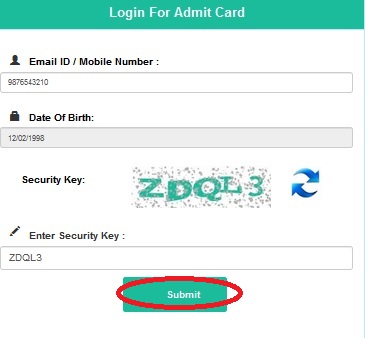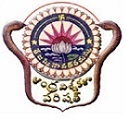APSET 2024 Download Admit Card Andhra Pradesh State Eligibility Test AP SET : Andhra University
Organisation : Andhra University, Visakhapatnam
Exam Name : APSET – 2024 Andhra Pradesh State Eligibility Test AP SET
Announcement : Download Admit Card
Exam Date : 28.04.2024
Website : https://apset.net.in/home.aspx
Download APSET Admit Card
Date of Examination is 28-04-2024. Download Admit Card for APSET – 2024 Andhra Pradesh State Eligibility Test, follow the below steps
Steps :
Step-1 : Go to the link https://apset.net.in/loginstu.aspx
Step-2 : Enter Email ID / Mobile Number
Step-3 : Enter Date Of Birth
Step-4 : Enter Security Key
Step-5 : Click on “Submit” Button.
Related / Similar Admit Card :
AP TET JULY 2024 Download Hall Ticket Teacher Eligibility Test Andhra Pradesh

Syllabus of Andhra Pradesh State Eligibility Test
Subject: GENERAL PAPER ON TEACHING & RESEARCH APTITUDE Code No:00
PAPER-I :
The main objective is to assess the teaching and research capabilities of the candidates. The test aims at assessing the teaching and research aptitude as well. Candidates are expected to possess and exhibit cognitive abilities, which include comprehension, analysis, evaluation, understanding the structure of arguments, deductive and inductive reasoning.
The candidates are also expected to have a general awareness about teaching and learning processes in higher education system. Further, they should be aware of interaction between people, environment, natural resources and their impact on the quality of life.
The details of syllabi are as follows:
Unit-I Teaching Aptitude
** Teaching: Concept, Objectives, Levels of teaching (Memory, Understanding and Reflective), Characteristics and basic requirements.
** Learner’s characteristics: Characteristics of adolescent and adult learners (Academic, Social, Emotional and Cognitive), Individual differences.
** Factors affecting teaching related to: Teacher, Learner, Support material, Instructional facilities, Learning environment and Institution.
** Methods of teaching in Institutions of higher learning: Teacher centred vs. Learner centred methods; Off-line vs. On-line methods (Swayam, Swayamprabha, MOOCs etc.).
** Teaching Support System: Traditional, Modern and ICT based.
** Evaluation Systems: Elements and Types of evaluation, Evaluation in Choice Based Credit System in Higher education, Computer based testing, Innovations in evaluation systems.
Unit-II Research Aptitude
** Research: Meaning, Types, and Characteristics, Positivism and Post-positivistic approach to research.
** Methods of Research: Experimental, Descriptive, Historical, Qualitative and Quantitative methods.
** Steps of Research.
** Thesis and Article writing: Format and styles of referencing.
** Application of ICT in research.
** Research ethics.
Unit-III Comprehension
** A passage of text be given. Questions be asked from the passage to be answered.
Unit-IV Communication
** Communication: Meaning, types and characteristics of communication.
** Effective communication: Verbal and Non-verbal, Inter-Cultural and group communications, Classroom communication.
** Barriers to effective communication.
** Mass-Media and Society.
Unit-V Mathematical Reasoning and Aptitude
** Types of reasoning.
** Number series, Letter series, Codes and Relationships.
** Mathematical Aptitude (Fraction, Time & Distance, Ratio, Proportion and Percentage, Profit and Loss, Interest and Discounting, Averages etc.).
Unit-VI Logical Reasoning
** Understanding the structure of arguments: argument forms, structure of categorical propositions, Mood and Figure, Formal and Informal fallacies, Uses of language, Connotations and denotations of terms, Classical square of opposition.
** Evaluating and distinguishing deductive and inductive reasoning.
** Analogies.
** Venn diagram: Simple and multiple use for establishing validity of arguments.
** Indian Logic: Means of knowledge.
** Pramanas: Pratyaksha (Perception), Anumana (Inference), Upamana (Comparison), Shabda (Verbal testimony), Arthapatti (Implication) and Anupalabddhi (Non-apprehension).
** Structure and kinds of Anumana (inference), Vyapti (invariable relation), Hetvabhasas (fallacies of inference).
Unit-VII Data Interpretation
** Sources, acquisition and classification of Data.
** Quantitative and Qualitative Data.
** Graphical representation (Bar-chart, Histograms, Pie-chart, Table-chart and Line-chart) and mapping of Data.
** Data Interpretation.
** Data and Governance.
Unit-VIII Information and Communication Technology (ICT)
** ICT: General abbreviations and terminology.
** Basics of Internet, Intranet, E-mail, Audio and Video-conferencing.
** Digital initiatives in higher education.
** ICT and Governance.
Unit-IX People, Development and Environment
** Development and environment: Millennium development and Sustainable development goals.
** Human and environment interaction: Anthropogenic activities and their impacts on environment.
** Environmental issues: Local, Regional and Global; Air pollution, Water pollution, Soil pollution, Noise pollution, Waste (solid, liquid, biomedical, hazardous, electronic), Climate change and its Socio- Economic and Political dimensions.
** Impacts of pollutants on human health.
** Natural and energy resources: Solar, Wind, Soil, Hydro, Geothermal, Biomass, Nuclear and Forests.
** Natural hazards and disasters: Mitigation strategies.
** Environmental Protection Act (1986), National Action Plan on Climate Change, International agreements/efforts -Montreal Protocol, Rio Summit, Convention on Biodiversity, Kyoto Protocol, Paris Agreement, International Solar Alliance.
Unit-X Higher Education System
** Institutions of higher learning and education in ancient India.
** Evolution of higher learning and research in Post Independence India.
** Oriental, Conventional and Non-conventional learning programmes in India.
** Professional, Technical and Skill Based education.
** Value education and environmental education.
** Policies, Governance, and Administration.
Exam Centres of APSET
Sno Regional Centre Code Regional Centre Name
1 01 VISAKHAPATNAM
2 02 RAJAHMUNDRY
3 03 GUNTUR
4 04 NELLORE
5 05 ANANTHAPUR
6 06 TIRUPATI
7 07 KADAPA
8 08 KURNOOL

Medium of Question Paper for APSET
** The question paper – I which is common for all candidates appearing APSET will be bilingual (English and Telugu).
** Paper – II for the following subjects a) Commerce b) Economics c) Education d) History e) Political Science f) Public Administration and g) Sociology will be bilingual (English and Telugu). All the remaining papers are in English only except Hindi, Sanskrit, Telugu and Urdu.
** The first paper carrying 100 marks is of General Awareness comprising 50 compulsory objective type questions of two marks each. The duration of this paper is one hour. Paper-I is common to candidates of all SET subjects.
** Paper-II carries 200 marks and is to contain 100 compulsory objective type questions of two marks each from the subject selected by the candidate. Further, the duration of this paper is two hours.

Recent Comments